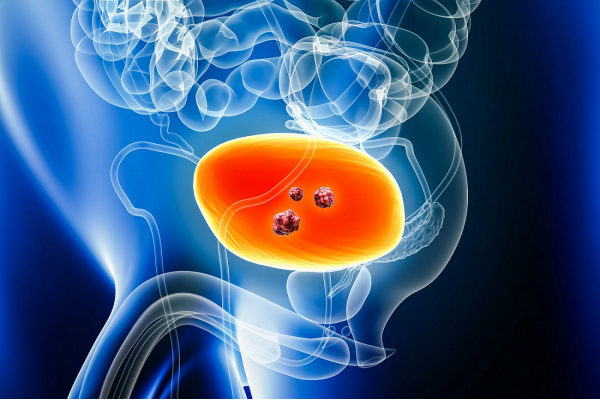FDA Approves Balversa for Locally Advanced, Metastatic Urothelial Carcinoma
January 23, 2024
Source: drugdu
 481
481

Today's FDA approval amends a previously granted accelerated approval for Balversa (erdafitinib) to treat patients with metastatic urothelial carcinoma whose tumors harbor FGFR3 or FGFR2 alterations following prior platinum-based chemotherapy.
The FDA has approved Balversa (erdafitinib) for adults with locally advanced or metastatic urothelial carcinoma with susceptible FGFR3 genetic mutations whose disease progressed on or following one line of systemic therapy.1 The regulatory action amends the accelerated approval granted by the FDA in April 2019 for patients with metastatic urothelial carcinoma with susceptible FGFR2 or FGFR3 alterations following prior treatment with platinum-containing chemotherapy.
Balversa, a fibroblast growth factor (FGFR) inhibitor, is not recommended for patients who are eligible for, and were not previously administered, prior treatment with a PD-1 or PD-L1 inhibitor, according to the FDA.The FDA based the approval on data from Study BLC3001 cohort 1, which evaluated data from 266 patients with metastatic urothelial carcinoma harboring selected FGFR3 alterations and who previously received one or two systemic treatments, including a PD-1 or PD-L1 inhibitor.
The open-label trial randomly assigned patients 1:1 to receive either Balversa or investigator’s choice of chemotherapy with vinflunine or docetaxel. Randomization was stratified by performance status, region, and presence of visceral or bone metastases.FGFR3 alterations were identified in 75% of patients with the therascreen FGFR RGQ RT-PCR kit, while the other patients were identified via local next-generation sequencing assays. The FGFR RGQ RT-PCR kit was approved as a companion diagnostic with Balversa in April 2019.
The study’s primary efficacy outcome was overall survival (OS), with outcome measures that included objective response rate (ORR) and investigator-assessed progression-free survival (PFS).Patients administered Balversa achieved statistically significant improvements in OS, PFS, and ORR compared with chemotherapy, according to the study. Data show median OS was 12.1 months (95% CI, 10.3-16.4) in patients administered Balversa vs. 7.8 months (95% CI, 6.5-11.1) in patients administered chemotherapy (HR = 0.64; 95% CI, 0.47-0.88; P = .0050).
Median PFS in the Balversa cohort was 5.6 months (95% CI, 4.4-5.7) vs. 2.7 months (95% CI, 1.8-3.7) in the chemotherapy cohort (HR = 0.58; 95% CI, 0.44-0.78; P = .0002). Confirmed ORR was 35.3% (95% CI, 27.3%-43.9%) in the Balversa cohort vs. 8.5% (95% CI, 4.3%-14.6%) in the chemotherapy cohort (P < .001).
In terms of safety, the most common adverse events reported by at least 20% of patients included nail disorders, increased phosphate, stomatitis, diarrhea, decreased hemoglobin, increased alkaline phosphatase, increased aspartate aminotransferase, increased alanine aminotransferase, increased creatinine, decreased sodium, decreased phosphate, dry mouth, dysgeusia, palmar-plantar erythrodysesthesia, fatigue, constipation, dry skin, increased calcium, decreased appetite, dry eye, alopecia, decreased weight, and increased potassium.The recommended dose of Balversa is 8 mg orally once daily, with the dose increasing to 9 mg once daily based on patient tolerability, including hyperphosphatemia, at 14 to 21 days. Patients can continue the Balversa regimen until unacceptable toxicity or disease progression.
Urothelial carcinoma is the most common type of bladder cancer, which is associated with genetic mutations present in the bladder or entire lining of the lower urinary tract. Bladder cancer is the sixth most common cancer in the United States. Urothelial carcinoma largely affects older adults with a median age of 73 years, and men are significantly more affected than women. FGFR alterations are present in approximately one in five patients with recurrent and refractory bladder cancer.2
Pharmaceutical Executive Editorial Staff
By editorRead more on
- The first subject has been dosed in the Phase I clinical trial of Yuandong Bio’s EP-0210 monoclonal antibody injection. February 10, 2026
- Clinical trial of recombinant herpes zoster ZFA01 adjuvant vaccine (CHO cells) approved February 10, 2026
- Heyu Pharmaceuticals’ FGFR4 inhibitor ipagoglottinib has received Fast Track designation from the FDA for the treatment of advanced HCC patients with FGF19 overexpression who have been treated with ICIs and mTKIs. February 10, 2026
- Sanofi’s “Rilzabrutinib” has been recognized as a Breakthrough Therapy in the United States and an Orphan Drug in Japan, and has applied for marketing approval in China. February 10, 2026
- Domestically developed blockbuster ADC approved for new indication February 10, 2026
your submission has already been received.
OK
Subscribe
Please enter a valid Email address!
Submit
The most relevant industry news & insight will be sent to you every two weeks.



